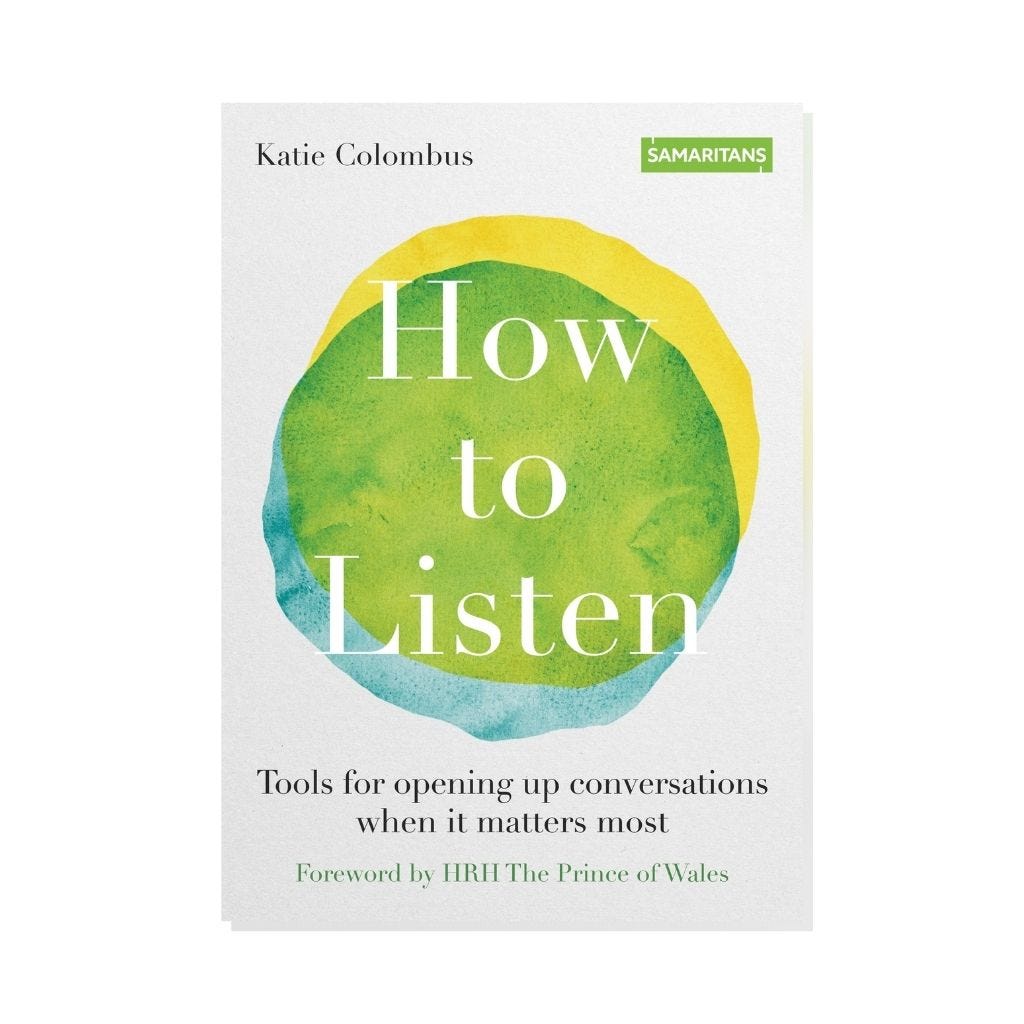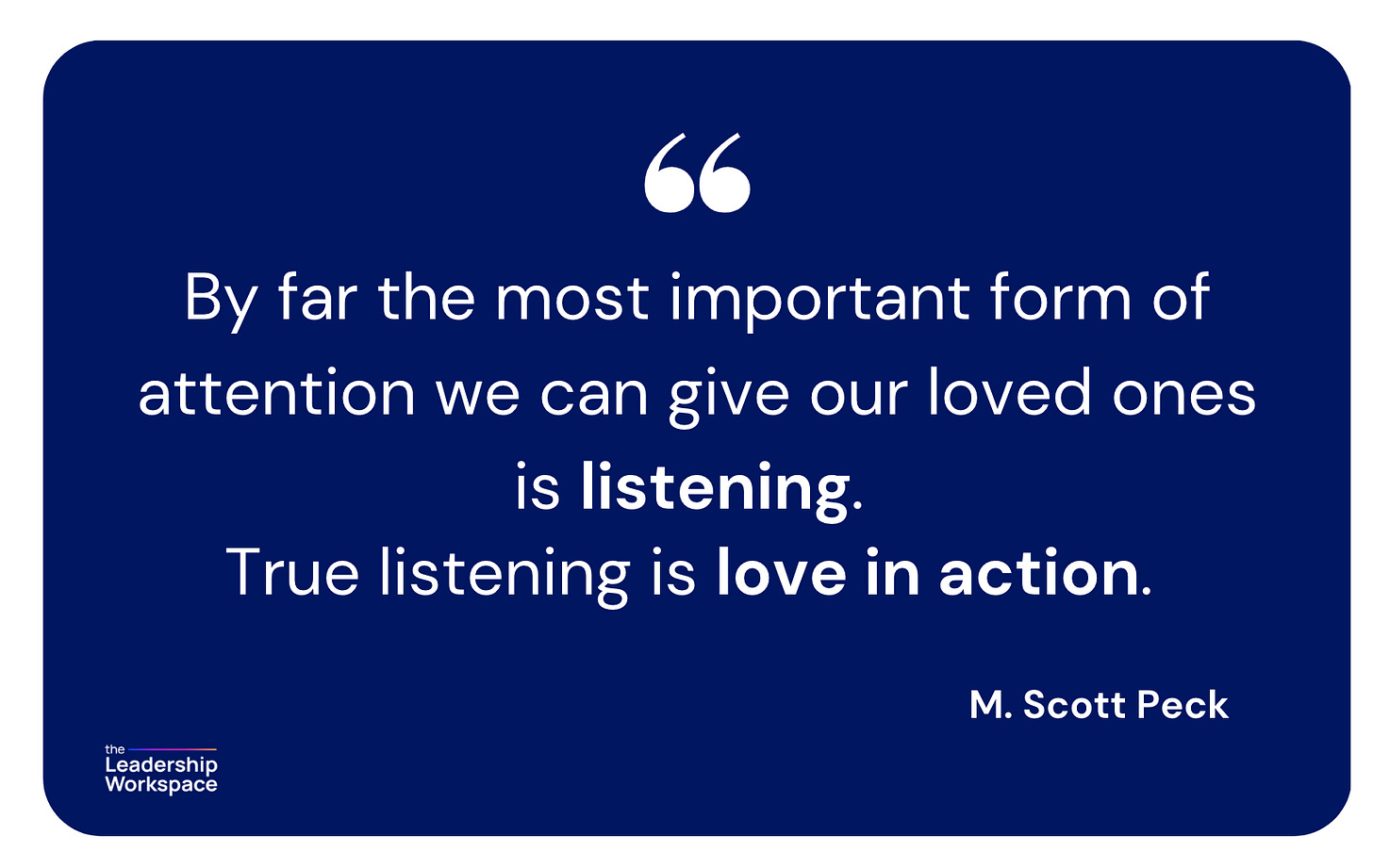If you are a leader who wants to show those around you that you care, there is no better tool than listening.
People open up when they know they’re really being listened to. They feel safer and trust grows.
When the other person is leaning in, interested in every word you are saying - that’s something.
When was the last time you experienced being truly listened to?
The challenge is that with the pace of business today, our conversations skim the surface.
And for busy leaders who are action-orientated, taking time for deep conversation can be nice to do rather than critical.
To make matters worse, in one study psychologists found that during conversations, 94% of the time people are thinking about themselves. Perhaps you’re listening for an opportunity to contribute and make your own point, change the subject, show you empathize or create affinity. Or even how to make an exit.
Add to that, a separate study found that we only remember between 25 and 50% of what we hear every day. (If you think about everything you hear during the day even that might be optimistic).
Perhaps that would be different if we were really listening.
Nevertheless, there is room for improvement.
And a huge opportunity for leaders who really do listen deeply.
To help you hone your listening style, here are eight things to get you started this week.
Watch: This excellent talk by the acclaimed Michael Bungay Stanier on How to tame your Advice Monster. It’s 14 minutes long.
Then reflect:
What’s your advice monster?
What drives and feeds the monster’s need?
What two things can you do in your next conversation to abate it?
Ask: Ask your team how they are, and really listen. Don’t settle for a passing exchange of pleasantries. Five minutes of deep conversation is so much more impactful, and also more efficient, than frequent ad-hoc chat in passing whilst your brain is multitasking.
Ask a specific question about their day/morning or work.
What words do they choose to use when they respond?
What do you observe from their tone of voice, body language, and energy?
Observe: Communication doesn’t happen only through the words we use. You communicate meaning through your tone of voice, the pace of speech, facial expressions, and body language.
Listening for meaning, rather than words is the key to deep listening.
Think about how you listen:
What do you pay the most attention to when you are listening?
What do you miss?
What one thing can you do to remind yourself to listen beyond the surface?
Acronym: When you’re tempted to stop listening and start talking, remember to WAIT.
Track: If you’re having a conversation and someone you provide leadership is speaking to you, do the decent thing and listen. Knowing what gets in the way of you really listening is critical.
Keep track of your conversations during the next few days:
When did you find yourself distracted?
What was the cause of the distraction?
What action can you take to minimise these distractions in the future?
Stop: You can’t be listening 100% if you’re doing something else at the same time.
Read this piece for a set of tools to help you mono-task when you need it.
Read: Listening can be life-saving. From opening up a conversation with someone who might be struggling, to how to use gentle encouragement to help others share their stories, this book by the Samaritans offers useful tips on how to talk about how to listen to one another in a way that can prevent day-to-day concern or worry from escalating into more complex emotions.
Wise words: Don’t limit your listening skills to those you work with or lead. What can you take from these words?
Related posts:
If you’ve enjoyed this week’s issue please hit the 🤍 button below. Meantime if you haven’t already, you can subscribe to receive the next issue straight to your inbox.







